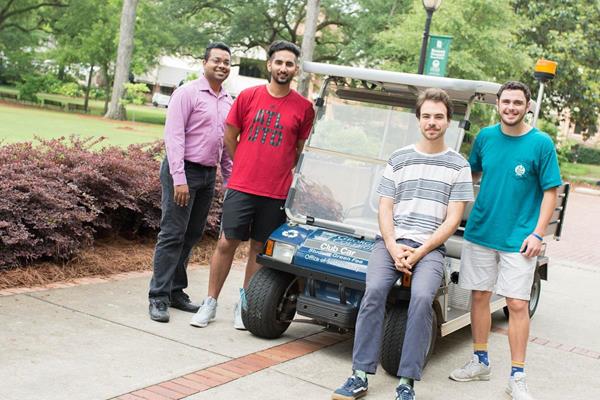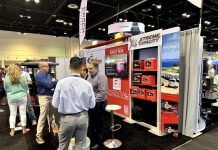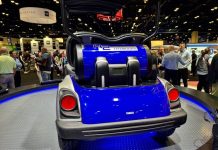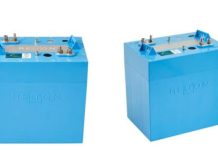
It seems that golf carts have become quite the experimenting ground for innovative transportation. We had reported back awhile ago on India-based company, Infosys, creating a driverless golf cart and now, three physics students and two high schoolers from Eatonton and Marietta, Georgia, are continuing THEIR research this summer by adding four solar powered golf carts to Georgia College’s current fleet of two.
They wish to make the current models more friendly and use aerodynamics to reduce the time it typically takes to charge the battery.
“We’re trying to improve the run times, so you don’t have to charge it so much, and so it runs longer,” stated the senior physics major, Nowsherwan Sultan, of Pakistan. “Our research here is to make solar cells more efficient, so they can collect more energy.”
Dr. Hasitha Mahabaduge, assistant professor of physics, started the solar research at the college in 2016. In the fall, two of his students created the first golf cart with solar panels. However, it cannot travel very far and takes about 26 hours for the battery to recharge.
That is why the students are looking to improve this aspect. They are going to begin by experimenting with a moveable solar panel. Shifting the panel to different angles, they plan to collect more sunlight and increase running times, all while lowering the need for charging. They’ll also adjust the tire pressure and locate spots on campus where carts can be parked to gain the greatest amount of sunlight.
Nick Palmer, a senior from Forsyth County, said they are planning to use multiple layers of solar cells to convert sunlight into energy. Right now, typically only one single layer is used. By putting the flexible solar cell upon each other, students plan to gain more energy from the sun.
The students received a $7,700 grant from Georgia College’s Office of Sustainability and a $6,000 grant from Georgia College’s MURACE (Mentored Undergraduate Research and Creative Endeavors) that provides stipends for researchers. The students plan on using these funds to purchase high-wattage solar panels.
The students said they feel privileged to do research that’s normally reserved for graduate students at other universities.
“I don’t feel like I’m going to go into the real world someday, I feel like I am already working in a real-world situation.”








